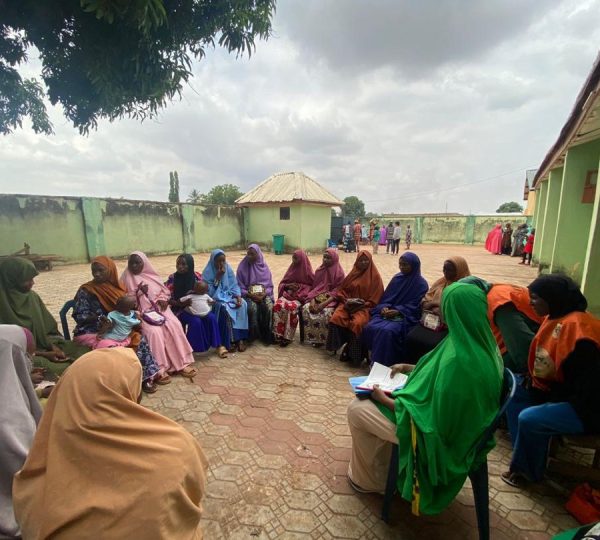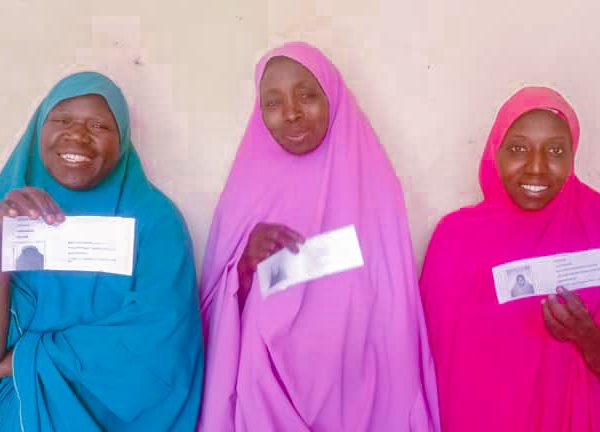INCEPTION MEETING AND INVITATION OF NATIONAL ADVISORY BOARD ON HEPATITIS C PREVENTION COMBINATION PROJECT IN NIGERIA.
By Kylie John-Moru, Isibhakhomen Ikhimiukor, Adedoyin Rebecca Badejo

The Federal Ministry of Health (FMoH) in collaboration with the Society for Family Health (SFH), Drug Free and Presentation Healthcare Organization (DAPHO), and Education as a Vaccine (EVA) through funding support from UNITAID is implementing Hepatitis C Prevention Combination Project.
The project inception meeting took place on Monday 4th September 2023 at Bolton White Hotel, Area 11, Garki, Abuja.
The Hepatitis C Prevention Combination Project focuses on the feasibility, acceptability, and effectiveness of under-used and innovative Hepatitis C prevention tools among People Who Use Drugs. The primary objectives of the inception meeting were to introduce the Hepatitis C Virus (HCV) portfolio project and set up a National Advisory Board to provide guidance and technical input to the project, in line with its goals and objectives.
The meeting was attended by key stakeholders and distinguished guests, such as Dr Adebobola Bashorun, National Coordinator, National AIDS and STDs Control Programme (NASCP), Dr Ganiyu, Deputy Director of the Viral Hepatitis Desk, NASCP, Dr Oluwafunke Ilesanmi-Odunlade, World Health Organization, Dr Lanre Abbas, Executive Director of State, SACA, Oyo State, Dr Anege, Representative from the Network of People Who Inject Drugs (PWID), among others.
 The meeting focused on two ongoing projects in Nigeria, namely HepCIII and HepC3P. HepCIII is being implemented by DAPHO with support from EVA and Frontline AIDS, while HepC3P is being implemented by Society for Family Health with funding from PSI. These project’s aim to expand Nigeria’s response to viral hepatitis with the primary objective of introducing and accelerating access to innovative and under-used products: Low Dead Space Syringes (LDSS) and Long-Acting Depot buprenorphine (LADB) in the prevention, diagnosis, and treatment of HCV in harm-reduction settings focusing on People who Inject Drugs and Prisoners.
The meeting focused on two ongoing projects in Nigeria, namely HepCIII and HepC3P. HepCIII is being implemented by DAPHO with support from EVA and Frontline AIDS, while HepC3P is being implemented by Society for Family Health with funding from PSI. These project’s aim to expand Nigeria’s response to viral hepatitis with the primary objective of introducing and accelerating access to innovative and under-used products: Low Dead Space Syringes (LDSS) and Long-Acting Depot buprenorphine (LADB) in the prevention, diagnosis, and treatment of HCV in harm-reduction settings focusing on People who Inject Drugs and Prisoners.
Active involvement of key stakeholders such as the Federal Ministry of Health, the PWID community, and the wider community was emphasised as a crucial aspect of the project. Their participation and contribution were seen as vital to the success of the projects in addressing viral hepatitis effectively.
During the meeting, it was highlighted that the projects involve a research phase that requires the development of a protocol. All stakeholders were encouraged to contribute and provide input towards the protocol to ensure its comprehensive and inclusive nature.
A significant focus of the meeting was to provide a platform for the government to take ownership of the projects and ensure their sustainability beyond the implementation phase. The increasing prevalence rate of hepatitis C compared to other diseases such as malaria and HIV necessitates a strong and sustained response.
The meeting also seeks to establish a National Community Advisory Board for the project with the aim of foster ongoing engagement and collaboration between implementing partners, PWID community members, and other stakeholders. This board will play a crucial role in providing insights, expertise, and guidance throughout the project’s implementation.

The meeting provided an opportunity for stakeholders to identify areas of synergy and leverage their collective expertise, resources, and networks. The rich contributions and discussions from the participants were seen as valuable in enriching the project’s goals and outcomes.
The project inception meeting and inauguration of the Community Advisory Board for the Hepatitis C Prevention Combination project in Nigeria, with SFH as the implementing partner, marked a crucial step forward in addressing the rising epidemic of hepatitis C. The meeting successfully introduced the projects, solicited support from stakeholders, and emphasised the importance of stakeholder involvement, feasibility, and sustainability.
We thank all participants for their active engagement and contributions. We remain committed to working collaboratively to combat viral hepatitis in Nigeria and ensure the success of these projects.





